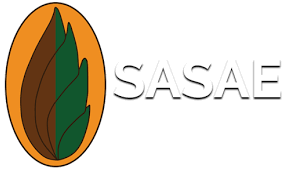The Role of Associative Mechanisms in Increasing Farmer Resilience to Natural Hazards
DOI:
https://doi.org/10.17159/2413-3221/2024/v52n1a14541Keywords:
Resilience, Associative Mechanisms, Disaster Risk Reduction, Natural HazardsAbstract
Associative mechanisms (such as cooperatives) offer various benefits to their members regarding financial advantages and risk management, providing access to skills and knowledge, strengthening communication and relationships, and offering members stronger negotiation and bargaining power. However, how membership to associative mechanisms contributes to small-scale farmers' resilience is not well documented. This article explores how associative mechanisms contribute to small-scale farmers' ability to absorb shocks, remain productive, and maintain their system's equilibrium. In total, 1110 respondents from seven Mozambique, Malawi and Madagascar districts were interviewed using a mixed assessment method. The data was analysed using a participant perspective. Various findings in the data showed that associative mechanisms benefit their members, including increased access to credit and more diverse market access, and enable members to employ less drastic coping strategies than non-members. The main recommendation is that farmers' associative mechanisms should be supported and guided to be internally driven and motivated mechanisms.
Downloads
References
BERKES, F., 2007. Understanding uncertainty and reducing vulnerability: Lessons from resilience thinking. Nat. Hazards., 41(2): 283-295.
CHANRITH, N., 2008. Farmers' associations in Cambodia: Internal functions and external relations. Thailand: Regional Centre for Social Science and Sustainable Development of the Chiang Mai University.
CURTIS, M., 2013. Powering up smallholder farmers to make food fair: A five point agenda. London: Fairtrade Foundation.
DARNHOFER, I., 2010. Strategies of family farms to strengthen their resilience. Environ. Policy Gov., 20(4): 212-222.
DEVAUX, A., HORTON, D., VELASCO, C., THIELE, G., LÓPEZ, G., BERNET, T., REINOSO, I. & ORDINOLA, M., 2009. Collective action for market chain innovation in the Andes. Food Policy., 34(1): 31-38.
FOLKE, C., CARPENTER, S.R., WALKER, B., SCHEFFER, M., CHAPIN, T. & ROCKSTRÖM, J., 2010. Resilience thinking: Integrating resilience, adaptivity and transformability. Ecol. Soc., 15(4): 20.
FOLKE, C., COLDING, J. & BERKES, F., 2003. Synthesis: Building resilience and adaptive capacity in social-ecological systems. In F. Berkes, J. Colding & C. Folke (eds.), Navigating social-ecological systems: Building resilience for complexity and change. Cambridge: Cambridge University Press, 352–387.
HELLEN, J., LUNDY, M. & MEIJER, M., 2009. Farmer organisations, collective action and market access in Meso-America. Food Policy., 34(1): 16-22.
JERE, P., 2005. Inventory and SWOT analysis of farmer organisations in the SADC region: A regional synthesis report on strengths, weaknesses, capacity needs and communication needs of FOs in the SADC. Lilongwe: PJ Development Consultancy Company.
KAGAZANI, E., FERRIS, S., BARHAM, J., ABENYAKO, A., SANGINA, P. & NJUKI, J., 2009. Sustaining linkages to high-value markets through collective action in Uganda. Food Policy., 34(1): 23-30.
KRUIJSSEN, F., MEIZER, M. & GIULIANI, A., 2009. Collective action for small-scale producers of agricultural biodiversity products. Food Policy., 34(1): 46-52.
KUMWENDA, W., BOTHA, B. & MCLEAN, S., 2013. Promoting empowerment and knowledge through smallholder farmers' associations in Malawi. Paper presented at the Hunger, Nutrition, Climate Justice Conference, 15-16 April, Dublin, Ireland.
MAYUNGA, J.S., 2007. Understanding and applying the concept of community disaster resilience: A capital-based approach. [Viewed 11 March 2021]. Available from https://www.theisrm.org/documents/Mayunga%20(2007)%20Understanding%20and%20Applying%20the%20Concept%20of%20Community%20Disaster%20Resilience%20-%20A%20Capital-Based%20Aproach.pdf
MCCARTHY, S., 2008. Groups, associations and other horizontal linkages. USAID Briefing Paper. [Viewed 20 November 2021]. Available from https://www.marketlinks.org/sites/default/files/resource/files/ML5813_horizontal_linkages_briefing_paper.pdf
NWAFOR, A. & NGOGA, T.H., 2020. Building resilient agriculture systems. Policy brief. [Viewed 16 February 2024]. Available from https://agra.org/wp-content/uploads/2020/07/Policy-Brief-Vulnerability-of-the-agriculture-sector-to-shocks-7-10-20.pdf
OSBAHR, H., TWYMAN, C., ADGER, W.N. & THOMAS, D.S.G., 2010. Evaluation successful livelihood adaptation to climate variability and change in southern Africa. Ecol. Soc., 15(2): 27.
POOLE, N. & DE FRECE, A., 2010. A review of existing organisational forms of smallholder farmers' associations and their contractual relationships with other market participants in the East and Southern African ACP Region. FAO AAACP Paper. [Viewed 20 November 2021]. Avaible from http://www.fao.org/fileadmin/templates/est/AAACP/eastafrica/FAO_AAACP_Paper_Series_No_11_1_.pdf
SICHALI, F., MCLEAN, S. & BOTHA, B., 2013. Seeds for change: A certified seed project in Malawi is boosting local incomes and supporting emerging national agricultural policy. Paper presented at the Hunger, Nutrition, Climate Justice 2013 Conference, 15-16 April, Dublin, Ireland.
SIEDENBURG, J., PFEIFER, K. & HAUSER, K., 2009. People-centred resilience: working with vulnerable farmers towards climate change adaptation and food security. Oxfam Briefing Paper. [Viewed 20 November 2021]. Available from https://oxfamilibrary.openrepository.com/bitstream/10546/114565/1/bp135-people-centred-resilience-161009-en.pdf
ŢÎNŢARCU, G., 2012. Opportunities and advantages of the associative forms in agriculture. Paper presented at the 3rd International Symposium "Agrarian Economy and Rural Development – realities and perspectives for Romania". [Viewed 20 November 2021]. Available from https://www.econstor.eu/dspace/bitstream/10419/76840/1/749480017.pdf
UNITED NATIONS CONFERENCE ON TRADE AND DEVELOPMENT [UNCTAD]., 2002. Farmers and farmers' associations in developing countries and their use of modern financial instruments. [Viewed 20 November 2021]. Available from https://unctad.org/system/files/official-document/poditccomd35.en.pdf
UPHOFF, N. & WAJIYARANTA, C.M., 2000. Demonstrated benefits from social capital: the productivity of farmer organisations in Gal Oya, Sri Lanka. World Devel., 28(11): 1875-1890.
WALKER, B.H., HOLLING, C.S., CARPENTER, S.R. & KINZIG, A., 2004. Resilience, adaptability and transformability in social-ecological systems. Ecol. Soc., 9(2): 5.
Downloads
Published
Issue
Section
License
Copyright (c) 2024 G.J. Wentink

This work is licensed under a Creative Commons Attribution 4.0 International License.







.png)